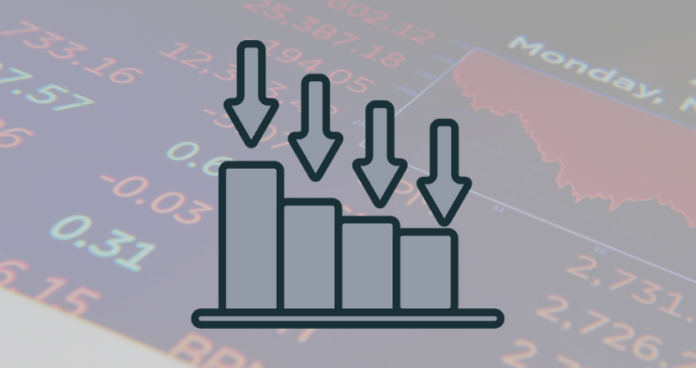The Pakistan Stock Exchange (PSX) faced significant selling pressure on Wednesday, with the KSE-100 Index opening on a negative note and losing over 3,000 points during intra-day trading.
According to the PSX website, the benchmark index started the session on a negative note and plunged to the 111,643 level, down by 2.81% or 3229.18 points by 11:40 am.
On Tuesday, the benchmark index had had closed at 114,872.18.
The market has been under pressure since last week, partly due to rising tensions between Pakistan and India following the Pahalgam attack.
On Wednesday morning, Information Minister Attaullah Tarar raised concerns about the possibility of a military strike by India, citing credible intelligence that India might use the Pahalgam incident as a false pretext for launching an attack within the next 24 to 36 hours.
On Tuesday, Indian Prime Minister Narendra Modi gave their military “operational freedom” to respond to the Pahalgam attack.
Indian shares were also muted on Wednesday as gains in heavyweight HDFC Bank helped offset pressure from tensions with Pakistan, while Bajaj Finance declined despite posting a rise in fourth-quarter profit.
The Nifty 50 was down 0.05% at 24,324, and the BSE Sensex lost 0.07% to 80,236.6 as of 10:43 a.m. IST. Both benchmarks swung between 0.2% gains and 0.2% losses in early trade.
“For now, geopolitical tensions (with Pakistan) have overtaken (U.S.) tariffs in investors’ minds,” said Anita Gandhi, founder and head of institutional business at Arihant Capital Markets.
On the global front, international markets showed uncertainty, with oil prices falling and shares struggling to find direction. Relief over potential easing in global trade tensions was overshadowed by a worsening economic outlook and negative signals from companies affected by U.S. President Donald Trump’s tariffs.
U.S. Treasury yields remained near multi-week lows, as traders anticipated further rate cuts from the Federal Reserve to support the U.S. economy. The prospect of a prolonged economic stagnation, leading to a potential recession, was also raised by economists, further weighing on market sentiment.




